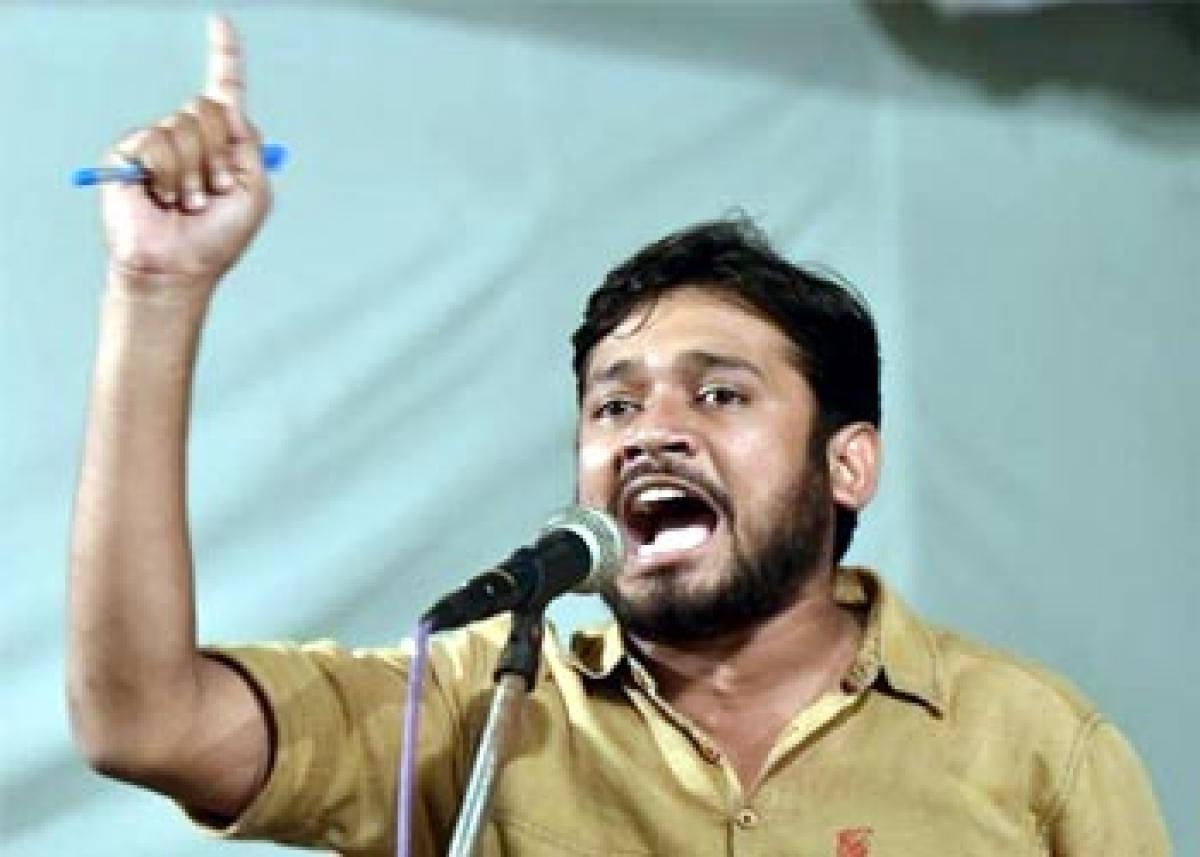Live
- GMR Airports Unveils AI-Powered Digital Twin Platform to Transform Airport Operations
- India poised to become leading maritime player: PM Modi
- Top Causes of Kidney Stones and How to Recognize Silent Symptoms
- India’s renewable energy capacity logs 14.2 pc growth at 213.7 GW
- Winter Session of Odisha Assembly adjourned sine die
- Biden calls Trump's tariff approach 'major mistake'
- After Drama Over Eknath Shinde’s Chief Minister Race, Maharashtra Cabinet Formation Faces New Tensions
- Egyptian FM, Blinken discuss recent developments in Syria
- Iran's supreme leader says Syria's developments result of US-Israeli 'plot'
- Elon Musk to Purchase $100 Million Luxury Mansion Next to Donald Trump's Mar-a-Lago, Report Reveals
Just In

The Delhi High Court\'s remarks on nationalism and love for the nation while granting bail to JNU student leader Kanhaiya Kumar were denounced on Thursday by senior legal experts.
New Delhi: The Delhi High Court's remarks on nationalism and love for the nation while granting bail to JNU student leader Kanhaiya Kumar were denounced on Thursday by senior legal experts.
Judge Pratibha Rani's observations are a part of a judicial trend which needs to be curbed right away, leading advocates said, with one dubbing them "totally uncalled for, unwarranted and unfortunate".
Senior lawyers said the judge appeared to be broadly espousing the official line on the events at the Jawaharlal Nehru University (JNU) where Kanhaiya Kumar was arrested on February 12 on charges of sedition.
He was accused of raising anti-India slogans at a meeting organised to mark the execution of parliament attack convict Afzal Guru, a militant from Jammu and Kashmir. Kanhaiya Kumar has repeatedly denied the charge.
The high court judge, while granting six-month interim bail to Kanhaiya Kumar, reminded him about his fundamental duties, love for the country, nationalism and the sacrifices soldiers were making and the demoralising affect that anti-India slogans had on the families of martyrs.
Pointing out that the observations had been lapped up by government circles and rightwing groups, activist-lawyer Prashant Bhushan told IANS: "It is a political rather than a legal judgment.
"The judge has no business to expound on nationalism or anti-nationalism which is not an offence under the law."
He added: "Nationalism is not defined anywhere and is not a ground on which freedom of speech can be restricted.
"By expounding on this issue, the judge seems to have played into the hands of those who are using this as a political weapon to drum up fascist hysteria in this country."
Echoing Bhushan's sentiments, Supreme Court Bar Association president and senior counsel Dushyant Dave described the observations as "totally uncalled for, unwarranted and unfortunate".
He added: "Judges must stay away from political debate."
Saying Kanhaiya Kumar deserved unconditional bail, Dave said: "Nationalism is not a part of judges' function to write about. They must confine to law and not emotive issues."
Former Delhi High Court judge Rupinder Singh Sodhi said that making loose observations was an unfortunate trend that the judiciary was adopting. "I think this trend has to stop now and immediately."
Justice Sodhi, also a senior lawyer in the Supreme Court, says granting interim bail had no legal precedent.
"All bails are interim in nature and can be cancelled at any time. Ordinarily, an interim bail is granted to fulfil an extreme social obligation which the court can always accommodate. As a rule, bail can either be granted or dismissed."
Another leading lawyer who did not wish to be identified by name said that while attempting to define nationalism in a pluralistic society, the judge seemed to have overstepped her judicial limits.
"Her observations are symptomatic of all that ails Indian judiciary and deserve to be expunged."

© 2024 Hyderabad Media House Limited/The Hans India. All rights reserved. Powered by hocalwire.com







